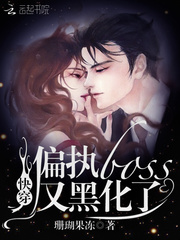CHAPTER VI
您可以在百度里搜索“Now It Can Be Told 艾草文学(www.321553.xyz)”查找最新章节!
CHAPTER VI
The entire aspect of the war was changed by the Russian Revolution, followed by the collapse of the Russian armies and the Peace of Brest-Litovsk, when for the first time the world heard the strange word “Bolshevism,” and knew not what it meant.
The Russian armies had fought bravely in the first years of the war, with an Oriental disregard of death. Under generals in German pay, betrayed by a widespread net of anarchy and corruption so villainous that arms and armaments sent out from England had to be bribed on their way from one official to another, and never reached the front, so foul in callousness of human life that soldiers were put into the fighting-line without rifle or ammunition, these Russian peasants flung themselves not once, but many times, against the finest troops of Germany, with no more than naked bayonets against powerful artillery and the scythe of machine-gun fire, and died like sheep in the slaughter-houses of Chicago. Is it a wonder that at the last they revolted against this immolation, turned round upon their tyrants, and said: “You are the enemy. It is you that we will destroy”?
By this new revelation they forgot their hatred of Germans. They said: “You are our brothers; we have no hatred against you. We do not want to kill you. Why should you kill us? We are all of us the slaves of bloodthirsty castes, who use our flesh for their ambitions. Do not shoot us, brothers, but join hands against the common tyranny which enslaves our peoples.” They went forward with outstretched hands, and were shot, down like rabbits by some Germans, and by others were not shot, because German soldiers gaped, wide-eyed, at this new gospel, as it seemed, and said: “They speak words of truth. Why should we kill one another?”
The German war lords ordered a forward movement, threatened their own men with death if they fraternized with Russians, and dictated their terms of peace on the old lines of military conquest. But as Ludendorff has confessed, and as we now know from other evidence, many German soldiers were “infected” with Bolshevism and lost their fighting spirit.
Russia was already in anarchy. Constitutional government had been replaced by the soviets and by committees of soldiers and workmen. Kerensky had fled. Lenin and Trotzky were the Marat and Danton of the Revolution, and decreed the Reign of Terror. Tales of appalling atrocity, some true, some false (no one can tell how true or how false), came through to France and England. It was certain that the whole fabric of society in Russia had dissolved in the wildest anarchy the world has seen in modern times, and that the Bolshevik gospel of “brotherhood” with humanity was, at least, rudely “interrupted” by wholesale murder within its own boundaries.
One other thing was certain. Having been relieved of the Russian menace, Germany was free to withdraw her armies on that front and use all her striking force in the west. It should have cautioned our generals to save their men for the greatest menace that had confronted them. But without caution they fought the battles of 1917, in Flanders, as I have told.
In 1917 and in the first half of 1918 there seemed no ending to the war by military means. Even many of our generals who had been so breezy in their optimism believed now that the end must come by diplomatic means—a “peace by understanding.” I had private talks with men in high command, who acknowledged that the way must be found, and the British mind prepared for negotiations, because there must come a limit to the drain of blood on each side. It was to one man in the world that many men in all armies looked for a way out of this frightful impasse.
President Wilson had raised new hope among many men who otherwise were hopeless. He not only spoke high words, but defined the meanings of them. His definition of liberty seemed sound and true, promising the self-determination of peoples. His offer to the German people to deal generously with them if they overthrew their tyranny raised no quarrel among British soldiers. His hope of a new diplomacy, based upon “open covenants openly arrived at,” seemed to cut at the root of the old evil in Europe by which the fate of peoples had been in the hands of the few. His Fourteen Points set out clearly and squarely a just basis of peace. His advocacy of a League of Nations held out a vision of a new world by which the great and small democracies should be united by a common pledge to preserve peace and submit their differences to a supreme court of arbitration. Here at last was a leader of the world, with a clear call to the nobility in men rather than to their base passions, a gospel which would raise civilization from the depths into which it had fallen, and a practical remedy for that suicidal mania which was exhausting the combatant nations.
I think there were many millions of men on each side of the fighting-line who thanked God because President Wilson had come with a wisdom greater than the folly which was ours to lead the way to an honorable peace and a new order of nations. I was one of them... Months passed, and there was continual fighting, continued slaughter, and no sign that ideas would prevail over force. The Germans launched their great offensive, broke through the British lines, and afterward through the French lines, and there were held and checked long enough for our reserves to be flung across the Channel—300,000 boys from England and Scotland, who had been held in hand as the last counters for the pool. The American army came in tidal waves across the Atlantic, flooded our back areas, reached the edge of the battlefields, were a new guaranty of strength. Their divisions passed mostly to the French front. With them, and with his own men, magnificent in courage still, and some of ours, Foch had his army of reserve, and struck.
So the war ended, after all, by military force, and by military victory greater than had seemed imaginable or possible six months before.
In the peace terms that followed there was but little trace of those splendid ideas which had been proclaimed by President Wilson. On one point after another he weakened, and was beaten by the old militarism which sat enthroned in the council-chamber, with its foot on the neck of the enemy. The “self-determination of peoples” was a hollow phrase signifying nothing. Open covenants openly arrived at were mocked by the closed doors of the Conference. When at last the terms were published their merciless severity, their disregard of racial boundaries, their creation of hatreds and vendettas which would lead, as sure as the sun should rise, to new warfare, staggered humanity, not only in Germany and Austria, but in every country of the world, where at least minorities of people had hoped for some nobler vision of the world's needs, and for some healing remedy for the evils which had massacred its youth. The League of Nations, which had seemed to promise so well, was hedged round by limitations which made it look bleak and barren. Still it was peace, and the rivers of blood had ceased to flow, and the men were coming home again... Home again! Now It Can Be Told




